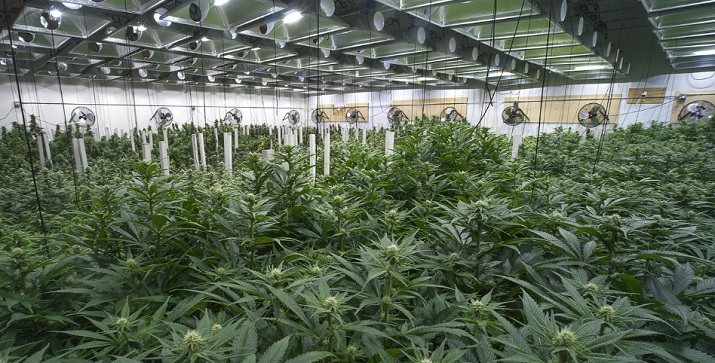
Denver’s marijuana industry continues to grow rapidly, as does its electricity consumption. CPR News acquired data from the Denver Department of Public Health and Environment showing that the energy-dependent marijuana plants use nearly 4% of the city’s entire electricity use.
Emily Backus, sustainability advisor for the department, mentioned that marijuana’s share of the energy grid is “significant” and “growing overall at a much faster rate than the overall energy use in the city,” Colorado Public Radio reports.
Fortunately, the amount of energy used to grow a pound of marijuana is decreasing because the increasing demand for marijuana is requiring facilities to grow more efficiently. Backus said cultivators are “becoming more efficient in their facilities.”
Marijuana plants present a challenge for Denver city officials who seek to reduce greenhouse gas emissions by about 80% by 2050.
A large portion of the city’s marijuana is grown indoors. The industry typically uses energy-intensive lights to increase yields. City officials are encouraging cultivators to use more sustainable growing practices that include LED lights and fine-tuning cooling systems to consume less electricity. The city started a working group to debate sustainable cultivation methods, and released a report suggesting the best ways for the industry to save on energy use.
Businesses like Colorado Harvest Company are paying attention to the new data. The company said it pays around $13,000 monthly on electricity for just one of its two cultivation facilities. Colorado Harvest experimented with LED lights for the vegetative stage of growth over the summer. CEO Tim Cullen said, “It does offset our electrical use. But it’s little bits at a time, and it’s over years and years and years.”
In the coming decades, numerous marijuana industry leaders expect marijuana cultivation facilities to look more like the traditional agricultural industry where huge warehouses will be swapped for sunny greenhouses and outdoor cultivation operation.
Cullen said, “I think this will be a short 10-20 year period in Colorado’s cannabis history that changes in the future as marijuana is more socially accepted and federally accepted, and production methods are allowed to be more agricultural and less clandestine.”
Photo: theconversation .com
 Idaho Marijuana | ID Marijuana Idaho Marijuana News and Information
Idaho Marijuana | ID Marijuana Idaho Marijuana News and Information


